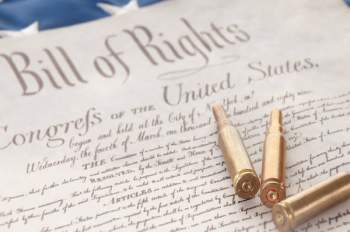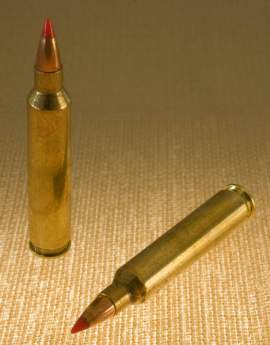
What You Must Know About Gun Rights

America's obsession with guns has been woven into our country's fabric since before the Revolution. The second amendment (which protects the right of an individual to keep and bear arms) is the legal establishment for gun rights in America. Even though the now controversial bill was adopted in 1791, the use of guns in America can be traced back well before that.
When the country was first established, settlers were forced to hunt for food to avoid starvation. The use of guns became a rite of passage for men. Shortly thereafter militias were formed for European settlers to protect themselves against Native Americans. The formation of militias, and the necessity to hunt, made guns a crucial building block for survival and expansion in America.
The tradition and formation of militias is crucial in understanding the origins of gun rights. During the late 18th century, America had no government or organized military to lean on. The armed citizen thus became our foundation for freedom. The militia relied on all civilians to equip themselves with weapons and ammunition. Survival and freedom was dependent on these soldiers, and it was an obligation for men to participate in the militia. The formation of militias was necessary to win the Revolutionary War.
Shortly thereafter, the use of guns gave way to western expansion of America. Ranchers, farmers, and cowboys all were proponents of gun rights for hunting, and self defense. Though there have been numerous alterations to gun rights, the weapon itself has long been a staple in America's culture.
After independence was won from Great Britain, American's began to question the rationality behind the second amendment and gun rights for individual use. During the Jacksonian era (1828-1850) the first individual gun right interpretation of the second amendment took place. Bliss vs. the commonwealth of Kentucky (1822) questioned whether or not the second amendment including the right to conceal a handgun for individualistic self defense. The courts found that the "right to bear arms is absolute and unqualified for individual purposes."
Roughly 20 years after this ruling, a collective gun right interpretation of the amendment was challenged in Arkansas. In state vs Blizzard (1842) the legislative court interpreted the second amendment as a political gun right and not an individual one-the right to bear arms is for the well being of the militia, and can be regulated by state doctrines. This dichotomy laid the groundwork for the following 175 years of 2nd amendment interpretation. Are the gun rights of the second amendment and individual right or a collective right?
As America embarked on such issues as slavery and the subsequent Civil War the critical debate revolved around black slaves and their individual gun rights. Is a gun right a privilege? Are black slaves considered citizens and thus entitled to the bill of rights? The court decision in Dred Scott v Sandford concluded that Negroes were not full citizens and were not entitled to such gun rights. This ruling dissolved shortly after the civil war with the institution of the 14th amendment, but the ambiguity over gun rights remained.
Following the conclusion of the civil war, gun rights began to face constant questioning. As our society evolved and our views shifted to the left, we began to adopt new rulings and legislation. The time line below will outline some of the more momentous hearings in regards to gun rights.
1871-The NRA (national rifle association) was founded by Col. William C. Church and Gen. George Wingate. A pro-gun right movement the NRA encouraged rifle shooting for scientific and constitutional reasons.
1934-National Firearms Act-President Franklin Roosevelt passed this law to curb the use of machine guns in American society. Following prohibition, the mafia and other lawless people flooded the streets, which eventually forced government to step in to dissipate the sale and use of dangerous firearms. Automatic weapons, sawed-off shotguns, and silencers were targeted for elimination. Gun manufacturers and distributors were slapped with a hefty tax for the sale or creation of such weapons.
1938-Federal Firearms Act-Gun traffickers involved in selling and shipping were forced to obtain a license and publish records to all individuals they sold to. This helped prevent criminals from obtaining weapons.
1968-Gun Control Act-Following the assassinations of JFK, MLK, and Robert Kennedy the federal government outlawed the practice of mail order guns, and required stricter rules in regards to licensing, record keeping, and transportation over state lines.
1994-Brady Handgun Violence Protection Act-Federal background checks, waiting periods, and stricter licensing requirements for the purchase of handguns.
The above laws have been fundamental in altering an individuals gun rights. As society continues to develop, and the use of guns becomes more controversial, the laws and restrictions attached to them will continue to advance.
NEXT: Gun Control



















